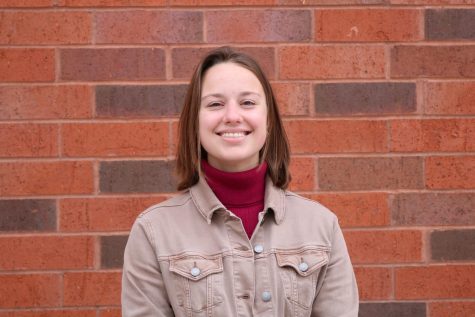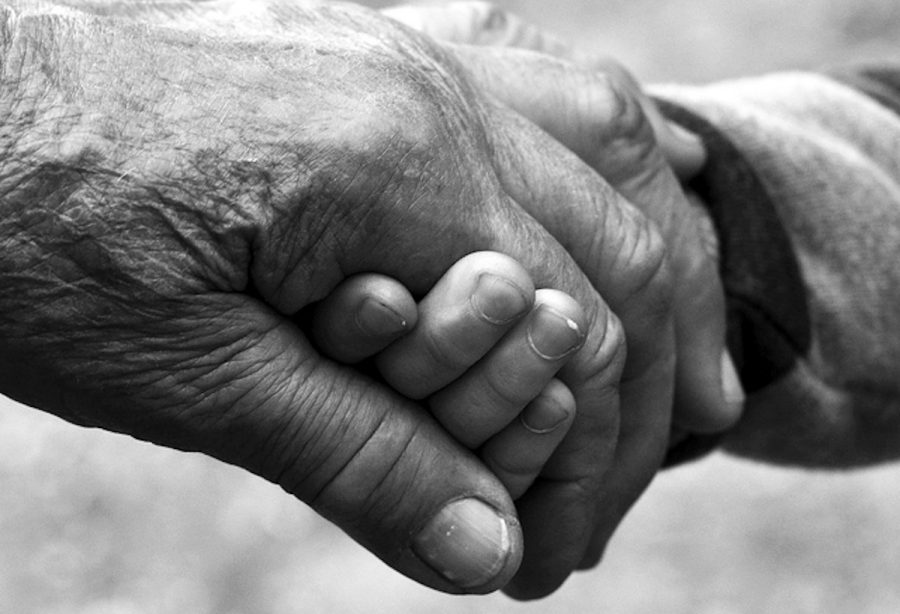Caregivers face challenges but can also see reward
Clinical review found unpaid family or informal caregivers provide as much as 90 percent of the in-home, long-term care needed by aging adults
Photo by Submitted
Arnott said others can ease the burden felt by caretakers if they visit.
In late December, Bernadette Arnott had an accident. She fell putting something away in a cabinet, dislocating her shoulder and fracturing her hip. Arnott realized she couldn’t move to reach her cell phone in her purse, so she called for her husband, Harvey Arnott, and asked him to get it for her.
“First, he brought me a shaver,” Arnott said. “Then he brought me some kind of book or something. Well, luckily I remembered my purse was on the counter, and I said ‘bring my purse,’ and he got that right. I was able to call for an ambulance.”
Harvey Arnott has dementia, and Bernadette Arnott is his caregiver. She’s been with him nearly every hour of the day for the past two years.
“It’s the hardest job I’ve ever had,” Arnott said, “but it’s also the most rewarding.”
Arnott is not unique in her role as a caretaker. According to a clinical review conducted in 2014, unpaid family or informal caregivers provide as much as 90 percent of the in-home, long-term care needed by adults. Caregivers can face burdens, but can also find honor in their work.
Sheryl Zedler, also of Tomahawk, works as a dialysis nurse. She said her duties include visiting the homes of patients to teach them how to perform dialysis by themselves. Over time, she has developed connections with her patients, which makes it harder for her when they pass away.
“Making time for myself is something I need to work on,” Zedler said.
Jeff Erger, who has a PhD in sociology and specializes in medical sociology, said the caregiver role is typically assigned to women who are spouses, mothers or daughters of an elderly person. This is because of gender roles in society. Women are more likely to work part-time or stay at home, he said, and therefore would have more time to be a caregiver.
“Often times the person they are providing care for is one of the major sources of emotional support in their lives,” Erger said. “Not only can they not draw on that, but they feel like they can’t bring those things up or let them be known, they feel like they have to keep their own stresses secret.”
Caregivers face emotional and physical burdens, the clinical review said. These burdens are increased by factors like financial stressors, social isolation and the caregiver’s mental health. Challenges are heightened if a caregiver is a spouse because they are less aware of the toll it is taking on their mental and physical health.
Arnott said she has moved through different stages during her time as her husband’s caregiver. When she first learned of her husband’s dementia, she said she felt a feeling “almost like anger” toward the entire situation.
“I felt like I lost my husband, my best friend, my lover — everything,” Arnott said.
Erger said it is common for caregivers to experience guilt about the negative feelings they have about their loved one.
“To feel guilty about having negative thoughts in those situations adds to the guilt and adds to the stress,” Erger said. “That’s one thing I think very few people expect.”
Arnott said she ended her twenty-year career as a furniture designer to learn how to best help her husband. She read and attended group discussions. Eventually, Arnott said, she began to accept her husband’s dementia and her role as his caregiver.
As she gets older and her husband’s dementia progresses, Arnott said she will consider moving her husband to a nursing home or assisted living facility. Until then, she said she will continue to care for her husband.
Simply being friendly is a good way to relieve the burden felt by a caretaker, Arnott said. Additionally, she said she enjoys when her husband gets visitors.
“All it takes is a couple kind words to the person taking care of them or to them,” Arnott said. “And they appreciate that.”
Neupert can be reached at neupercm7411@uwec.edu.

Neupert is a fourth-year journalism student at UW-Eau Claire. She is the executive producer of Engage Eau Claire on Blugold Radio Sunday. In her spare time, Neupert's working on becoming a crossword puzzle expert.

